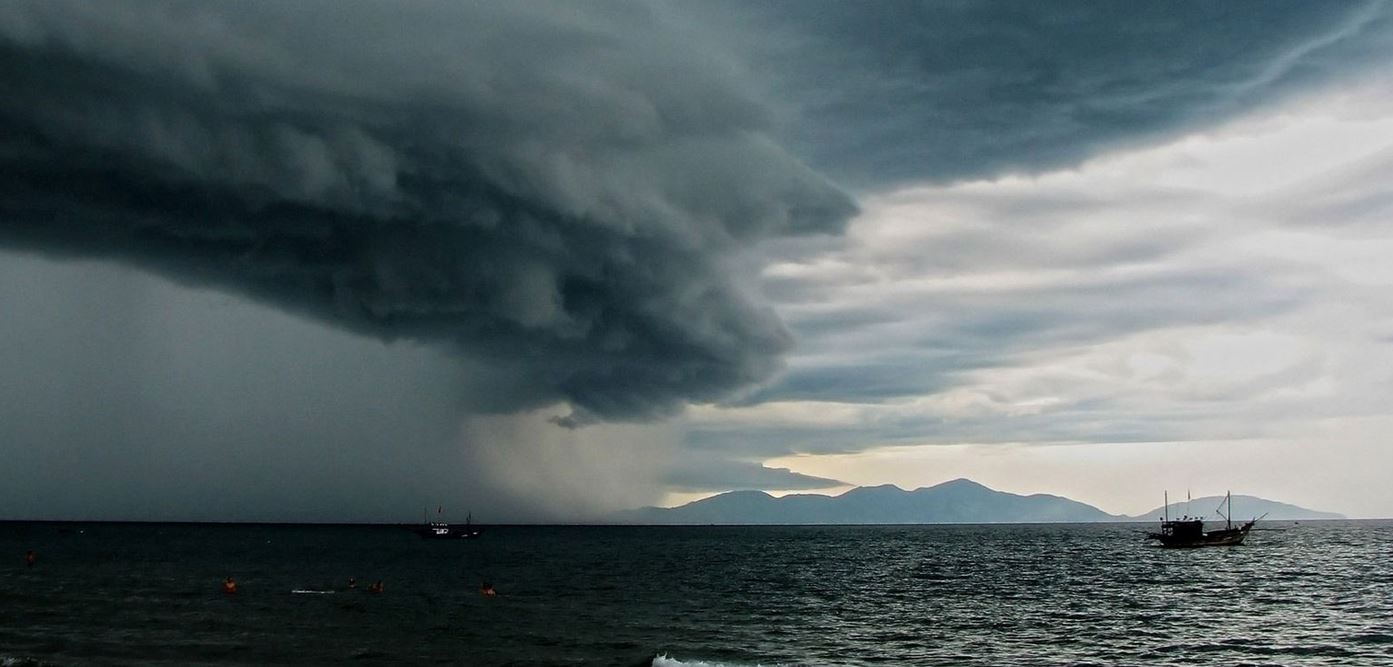QUEEN'S RESEARCHER CREATES DISASTER PROOF COMMUNICATIONS SYSTEM
25 October 2017
A researcher at Queen’s has been shortlisted for the 2017 Newton Prize after he created a robust wireless communications system which can battle through an earthquake, tsunami or hurricane.
In the wake of natural disasters which have brought communication to a standstill, Dr Trung Duong – who is originally from Vietnam and based at the Institute of Electronics, Communications and Information Technology (ECIT) at Queen’s – has been leading an international research team to tackle the problems of maintaining communications under hostile conditions.
From 2005 to 2014, Vietnam was hit by 649 natural disasters, destroying almost half a million homes and causing 10,000 casualties annually.
Throughout this extreme weather, communication has been essentially non-existent but Dr Duong’s team have now come up with a solution to the problem. They have designed an integrated heterogeneous wireless system (IHWS), which is robust in disaster scenarios, coping with issues such as physical destruction of telecommunication networks, lack of power supply and network congestion.
The system also provides early warning of natural disasters by detecting water level, vibration and wind. In cities, the IWHS can identify increases in dust, temperature, noise and carbon dioxide levels.
Dr Trung Duong from the School of Electronics, Electrical Engineering and Computer Science (EEECS) at Queen’s explains: “Our research at Queen’s is helping to solve the global problem of communicating during a natural disaster. The system which we have created has many potential applications in disaster, climate change and carbon dioxide level monitoring and management, as well as in the provision of e-health services.
“It has been fantastic to lead this international project and I am very pleased that academic staff and students from 20 universities throughout Vietnam have now been trained in the system and several leading telecommunication companies are interested in bringing it into production.”
The annual £1 million Newton Prize is a fund awarded for the best research or innovation that supports the economic development and social welfare of developing countries. Dr Duong is in with the chance of winning up to £200,000 from the Prize to be used to advance or develop the work further.
The Prize is part of the broader Newton Fund, which builds research and innovation partnerships with 18 partner countries to support their economic development and social welfare, and to develop their research and innovation capacity for long-term sustainable growth. It has a total UK Government investment of £735 million up until 2021, and each partner country provides matched funding and resources for every programme, making it an equitable partnership.
More than 150 Newton funded projects, fellowships or other awards applied for the Newton Prize from the eligible countries for this year – India, Malaysia, Thailand and Vietnam.
The Newton Prize winners will be announced at celebratory award ceremonies next month (Vietnam – 16 November) and the Minister for Universities, Science and Research Jo Johnson will also host a UK event in London in early December to celebrate the first year of the Prize and to announce the 2018 Newton Prize countries.
Further information is available on the Newton Fund website. Follow their Twitter feed for regular updates about the Newton Prize: @NewtonFund and #NewtonPrize.
Media inquiries to Emma Gallagher at Queen’s University Communications Office, tel: +44 (0)28 9097 5384.
Back to Main News
Top of Page